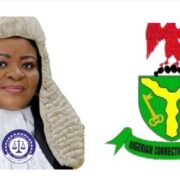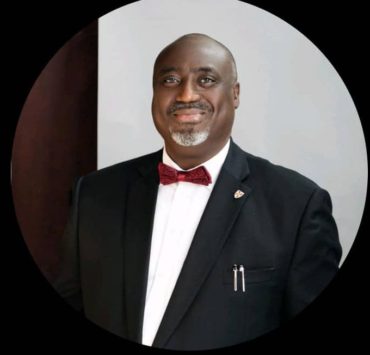2023 Election: Peter Obi Can’t be Disqualified Over Crowdfunding – Ex-Chairman, NBA-SPIDEL

Lawyard is a legal media and services platform that provides…
The immediate past chairman, Nigerian Bar Association, Section on Public Interest and Development Law (SPIDEL), Paul Ananaba, in an interview with AriseTV Morning Show of Monday, September 5th stated that a call by a support group of the All Progressives Congress (APC) presidential candidate, Asiwaju Bola Tinubu, for the disqualification of the Labour Party candidate, Peter Obi and his running mate, Yusuf Datti Ahmed-Baba, can not stand as it is not backed by law.
The Labour Party national chairman, Julius Abure, reportedly inaugurated an 11-man diaspora committee in Abuja to raise funds for Obi.
Is it legal to do crowd-funding and get funds from the diaspora by a presidential candidate?
Simply, the laws are very clear on this, the political party, Labour Party in this instance, or even any political party for that matter, cannot raise funds from outside Nigeria. If they do, they cannot retain such funds. It is a constitutional issue and a crime under Section 85 of the Electoral Act. Now, let me take the constitutional part of it, Section 225, 23 A and B, is very clear that the political party cannot raise funds outside Nigeria or retain funds or accept same. If they do, they must within 21 days turn those funds over to INEC and any contravention of such provision is a criminal offence. And I’m happy that we are now talking about an Electoral Offences Commission and all that. These laws over time have been lying waste and they have not been activated. That’s why impunity in the electoral system has continued for some time. I think that, irrespective of the good intention or whatever, people have to support political parties in Nigeria, particularly, Nigerians abroad; they cannot do that from abroad, they can only come into Nigeria, and contribute. And when they do, the Electoral Act, Section 85, 86, 87, 88, 89, and 90 deals with election financing. It is an offense under the Electoral Act to contribute more than N50 million. So if you’re going to do that, INEC has to be notified.
Now, maybe because Peter Obi is in the Labour Party, that is why a lot of attention is being paid to it. Our laws do not say anything about the candidate. If you look at Section 152 of the Electoral Act, it does not define a political party to include its candidates in an election. Now, if you also look at the definition of a candidate, a candidate does not include a political party. And that’s why in election petitions, whether pre-election or the election petition, the political party and the candidate are sued separately. So, the candidate is not caught up by this analysis I have made; so a candidate is not precluded from raising funds but political parties are precluded. And if a political party raises funds, it must within 21 days, report back to INEC, turn the funds over to INEC; it cannot retain the funds for more than 21 days. So, I don’t think that Labour Party has looked at that. If they have looked at that, they should practically warn themselves, and then move away from raising funds outside the country.
If when the funds are within Nigeria, they have limitations. They have to comply with the law. Everyone should be more law abiding and no one should become too sentimental to avoid the clear provisions of the Constitution in this instance and then the Electoral Act. Now, INEC has a duty to also regulate election expenses and political parties have duties to make returns to INEC as to how much funds they raised, the expenses they make. And the Electoral Act is so clear that those funds must be accounted for. But you know, those are in our law books. In practice, I’ve not seen that happen.
Which is why Section 86, which mandates political parties to submit annually, their full statements of accounts to INEC, gives the provision for six months imprisonment for political party officials rather than individual candidates just to buttress what you said. But I’ll start off with Labour Party’s position that this clamour arose from the diaspora, that they are individuals in the diaspora who want to support the candidature of their presidential candidate Peter Obi. So, is there any legal way that that can be done bearing in mind what we’ve just discussed? Secondly, there has been a call for disqualification of Peter Obi from the presidential elections from the Tinubu-Shettima Support Group. Are there grounds for disqualification at this time?
Well, I don’t speak for INEC or the courts; I don’t also speak for the political group calling for disqualification. We are in a democracy, and they can make calls for disqualification of any candidate. But speaking clearly, in the analysis, I stated clearly that Section 225 A, and 225 of the Constitution do not talk about the candidates. So, there’s no basis to disqualify any candidate. It talks about the political parties raising funds from outside the country. Like I said, the candidate is not barred in any way from raising funds from outside Nigeria but the political party is. Okay, that’s what the Constitution says and that is what the Electoral Act says. No mention is made of the candidate. You can read Section 85,86,87,88,89 and 90. Now, where the regulations that are seen in respect of the candidate comes into how much you can spend for elections, the President cannot spend more than N5 billion, the governorship candidate cannot spend more than N2 billion. That’s what the law says; we shouldn’t go beyond the law and begin talking about bringing in a disqualification on that ground for a candidate when the law does not say so, I don’t think it is correct. If we’re not satisfied with the law, we should take steps to ensure that there’s an amendment of the law. The Electoral Act is just fresh, Section 162, like I stated, does not define a candidate to include the political party, and does not define a political party to include its candidate. So, that is the position of the law as we speak. So a call can be made, but it won’t go beyond a call, because it is not backed up by law. In my opinion, the law is very clear. The party cannot but the candidate is not precluded.
Let’s talk about enforcement. Because in all of this, enforcement has been a big problem, and the fact that yes, there are guidelines on how much people can spend but obviously, they will outspend it. So for good measure, a certain political party, not part of the big ones, was having a meltdown. And one of their members did confirm that for the party primaries alone, the person that finally emerged the presidential candidate, the chairman of the party did ask him to give him N2 billion before they finally negotiated a certain amount, but he didn’t say if that money was given or not. But if for party primaries people have spent over N2 billion for a party that is not a major party, let alone the major parties, we saw how much is spent during their party primaries. So how realistic is this with what we have on ground? And how can we truly enforce all of this?
An unenforced law is as good as no law. And that’s why in the course of my speeches, I was saying that, it is good news that we are having Election Offense Commission, because think about it, INEC cannot have the capacity to enforce all these laws. What you see from section 85 to Section 90, aside from other laws, and INEC cannot have that capacity. At a particular point, a former INEC Chairman, Professor Jega, had stated he had over 790 election offenses suspects, how much does the Commission have that it will begin to prosecute all those people. And that’s why after the threats that people should be brought to book, if you offend the Electoral Act, nobody is brought to any book. Now the Election Offense Commission, I support should be hastened and be put in place, and we will have special prosecutors on that point, then people will begin to know that the law is binding.
Lawyard is a legal media and services platform that provides enlightenment and access to legal services to members of the public (individuals and businesses) while also availing lawyers of needed information on new trends and resources in various areas of practice.















